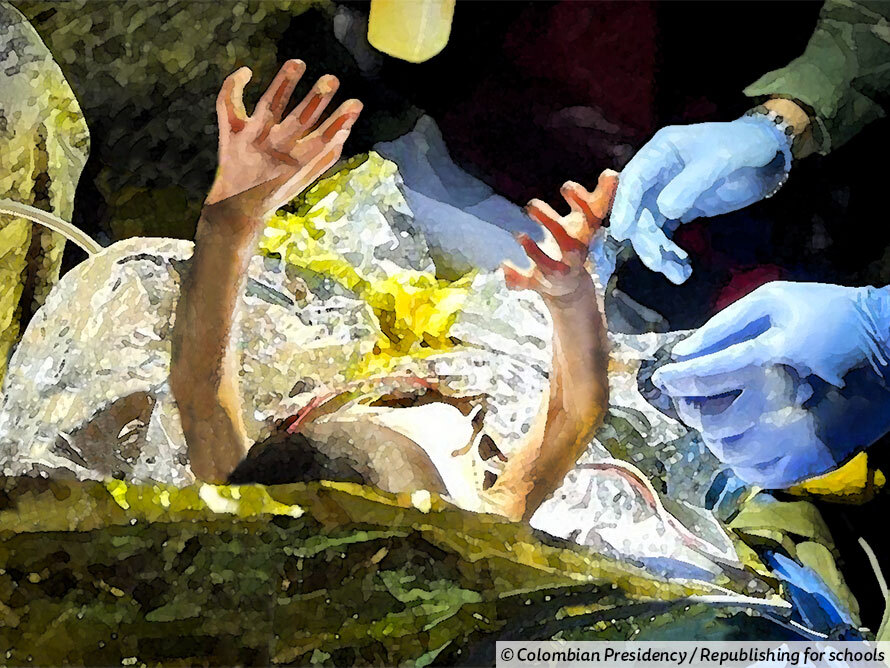Should survival skills be taught in school? Thanks to their exceptional upbringing, four children have been found alive in the Colombian jungle 40 days after their plane crashed.
‘Miracle, miracle, miracle, miracle’
 Four miracles: The children were taken to hospital by helicopter and are now recovering.
Four miracles: The children were taken to hospital by helicopter and are now recovering. Glossary
Mayday - An internationally-recognised distress signal. It is a corruption of the French "venez m'aider", meaning "come and help me".
Indigenous - Ethnic groups who are the original or earliest-known inhabitants of an area or country: for example, Native Americans in the USA.
